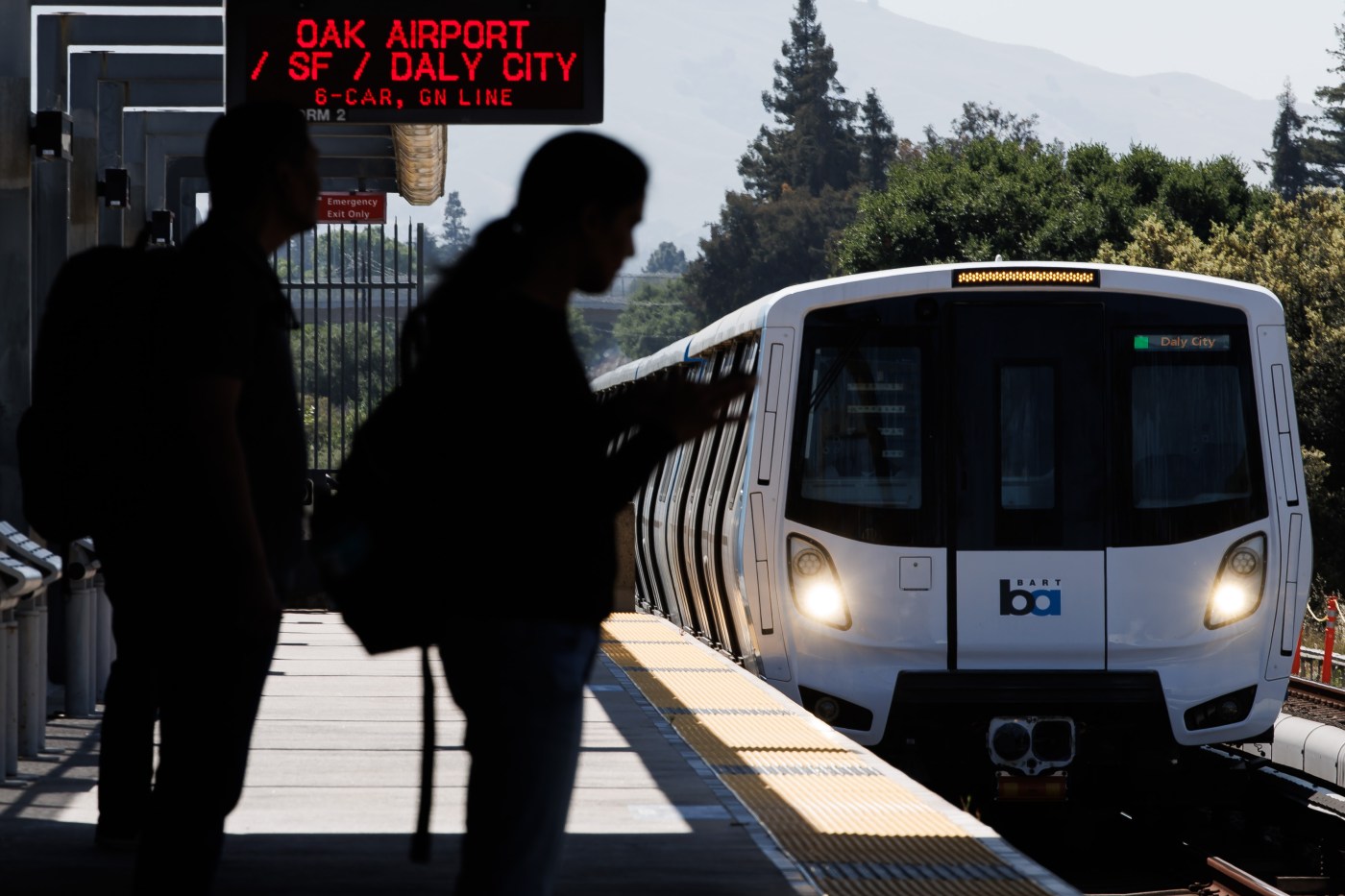A $750 million loan to the Bay Area’s transit agencies included in the current state budget to stave off major service cuts this year may be on the rocks.
The loan included in a budget deal between Gov. Gavin Newsom and the Legislature earlier this summer was designed as a bridge to keep BART, San Francisco’s Muni, AC Transit in the East Bay and Caltrain on the Peninsula afloat through 2026. The hope was that by then, lawmakers could persuade voters to back a long-term funding source, likely through a regional sales tax measure.
But the emergency aid is still in limbo. The agreement required a separate bill to set the loan’s terms — legislation that transit advocates say has been held up by the governor’s office with less than two weeks left in the session.
“The state loan has not yet materialized, and the clock is running out on this legislative session,” said Laura Tolkoff, transportation policy director for the urban policy group SPUR, which has been leading the charge to fund transit. “We have done our part, we need them to do theirs.”
The last day to pass bills is Sept. 12.
In a statement, Newsom’s communications director Daniel Villasenor said that the administration “supports our local transit agencies and remains open to reviewing proposals as we finalize the remaining budget items.”
It’s also unclear whether Newsom would actually block the loan, or whether the administration is slow-walking the bill to get leverage somewhere else, as is common in the last days of the legislative session.
“We’re working hard to thread a tight needle here that will ultimately help sustain transit service in the region while preserving the fiscal health of the state,” wrote Rufus Jeffris, spokesperson for the Bay Area Council, a business group that supports transit funding.
A transit bailout was going to be a tough sell this year, as the state faces its own $12 billion funding shortfall. The state also already has provided some $5.1 billion in emergency funding to transit agencies since the start of the pandemic.
That emergency funding is set to end next year, and the region’s transit systems are staring down major deficits in their 2026-27 budgets — $376 million for BART and $72 million for AC Transit.
Transit agencies warn that, without the state funding, they could be forced into a “death spiral” of major service cuts and even more dramatic ridership declines.
“Governor Newsom must follow through on his commitment to save Bay Area transit by finalizing the $750 million loan that was promised in his budget,” said SEIU 1021 President Theresa Rutherford. “If he does not, the consequences will be devastating: widespread cuts to bus and train service, far more traffic congestion on our bridges and freeways, and mass layoffs.”
But there’s a question of how long Newsom will be willing to bankroll the transit agencies. Already, the administration pushed back against Bay Area lawmakers’ demand for a grant and forced them into a loan. While transit advocates have been pushing the administration to make that loan zero-interest, they may be forced to pay more.
The Legislature also must hold up its side of the bargain — the $750 million loan will only be authorized if the Legislature passes a longterm solution to fund Bay Area transit. Lawmakers still are negotiating over a potential regional sales tax measure, SB 63, which which would allow voters to impose a half-cent sales tax in Alameda, Contra Costa, San Mateo and Santa Clara counties, and a full cent in San Francisco. If more than a majority of voters approve it, the tax would raise up to $1 billion annually over the next 14 years for BART, Caltrain, San Francisco’s Muni and other agencies.
Critics have argued that the transit agencies, in particular BART, haven’t done enough to control their costs, including adjusting services and staff to meet the reduced ridership they are seeing since the COVID pandemic.
Still, SB 63 is expected to pass in some form. But transit advocates worry that if the loan doesn’t come through and services are cut, that could erode voter support for the measure when it appears on the November 2026 ballot.
“We are grateful for this loan because it will prevent deep service cuts from happening before local voters get to weigh in on the potential ballot measure and as transit agencies seek local revenues to fund operations,” BART spokesperson Alicia Trost previously told this news organization.





